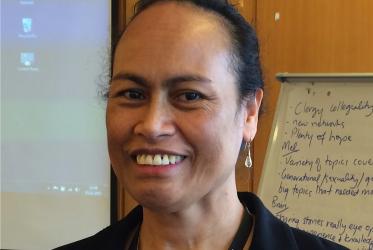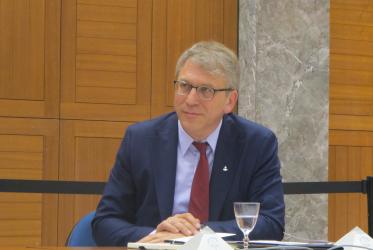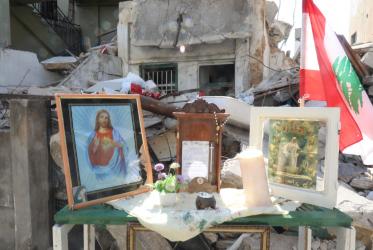Displaying 141 - 160 of 189
Religious leaders as agents of peace in the Americas
02 March 2016
"I hit the ground running": Katalina Tahaafe-Williams
16 February 2016
Symposium focuses on religion, violence, extremism
04 February 2016
Church challenge: Welcoming "strangers" in a climate of fear
18 November 2015
At UN, anti-nuclear majorities challenge nuclear-dependent minority
05 November 2015
U.S. Black Methodists release documents to help confront racism
23 September 2015
Faith communities urge U.S. to resettle more Syrian refugees
14 September 2015
WCC encourages churches to pray on Hiroshima Day
06 August 2015
WCC condemns mass killing in Charleston
18 June 2015
Killer Robots? Moral questions pervade UN conference
23 April 2015









